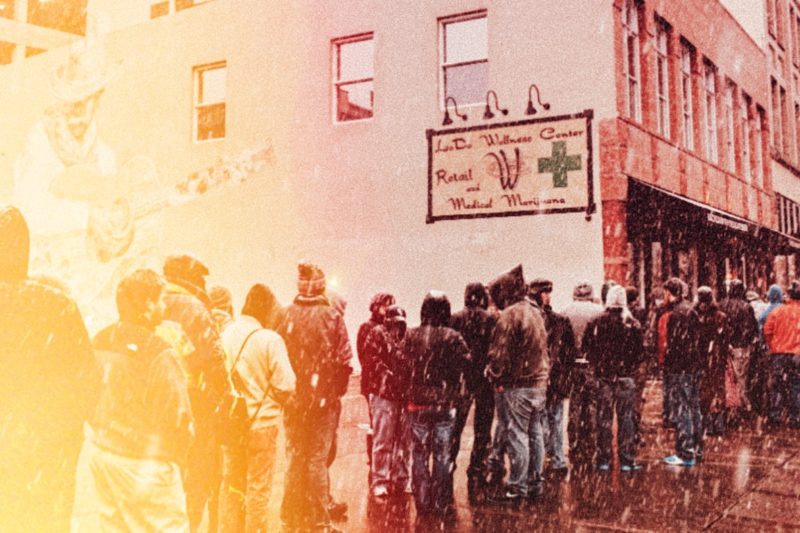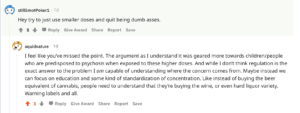
Earlier this week we had a story on the battle for capping THC in Colorado, and today the story is moving outside of that state.
An article in Politico discusses the efforts happening in other states, including Washington and Florida.
As of today, Vermont is the only state with any caps: 30% for flower and 60% for concentrates.
Big claims being made in this one, including this one from Washington state Representative Lauren Davis, who after marijuana lobbyists denied in 2020 that marijuana was the cause of any psychosis, says “They were sitting there, doing exactly what Philip Morris did, exactly what Purdue Pharma did — trying to poke holes in science and question that consensus of the scientific community.”
The industry’s argument is that this is all overblown. Weed should be treated like alcohol, with state regulators ensuring a safe product. Recently a comment I found on reddit echoes a similar claim.

This is the “make people aware of the risk” approach.
There’s also the initial fear of people who want that same high potency concentrates to be driven into the illicit market where there have been hugely dangerous problems in the past.
A refute from Kevin Sabet, president of Smart Approaches to Marijuana, “The reason we even have high potency products is because of the legal market. They invented this. Pablo Escobar did not invent this. Mexican drug cartels never came up with this stuff. This is American ingenuity, and it’s American ingenuity gone wrong.”
And of course a refute to this is from Kris Krane, who claims there HAVE been high concentrated THC products in the past, just not in the variety we see them today.
Our biggest problem with this discussion is the thin amount of science behind either side.
However, more studies come out on the side of curbing higher THC products.
“What happens is the endocannabinoid system — when it turns on — its effects last for just a few milliseconds to seconds. But when someone smokes cannabis, that system is turned on not for seconds to milliseconds, but for minutes to hours,” says Deepak Cyril D’Souza of Yale University. “And so exposure to cannabis during these critical phases of brain development can be messed up, for lack of a better word.”
Florida has been trying to cap THC for three years straight, to no avail.
New legislation this year that would cap flower at 10% and concentrate at 60% is now doomed, with the governor stating he does not support it.
The clear path seems to be one that is a longer road, but necessary. In Florida’s 2022 budget, they have allocated $4 million to expand marijuana testing into THC concentrates. Perhaps that should be the way forward for any state having difficulty passing legislation.

